Today’s article is brought to you by Ben Walker, a personal trainer from London Fitness in the UK. He is going to explain why it’s important to balance macronutrients in your diet.
Macronutrients are needed daily in order to keep an optimum level of health and wellness. These nutrients contain a substantial amount of calories that help us to develop energy, cellular growth, increase immunity, and repair any other damage to our system.
Our bodies also need micronutrients in the form of vitamins, minerals, fiber, and water. These elements help catalyze the reactions of macronutrients for the ongoing functions needed by our system.
There are three primary macronutrients: carbohydrates, proteins, and fats.
It is important to have a balanced diet when considering your intake of macronutrients. The calories we receive from all three food sources have a variety of different functions. Excluding any source of macronutrients will eventually lead to deficiencies and health-related problems.
Let’s take a look at the important roles of each macronutrient and how much of each primary food source you should be consuming daily.
1. Carbohydrates

The primary function of carbohydrates is to create energy for our bodies. Carbs are found in foods like pasta, rice, bread, vegetables, fruits, and dairy products.
According to Health Harvard, we should be consuming approximately 50% of our daily calories from carbohydrates when considering a balanced diet. Our body creates energy a lot easier from carbs than it does from food containing mainly fats and proteins.
Carbohydrates are broken down easily by our digestive system to form glucose. Glucose is a type of sugar that our body can utilize quickly for energy. Excess amounts that we don’t use are stored in the form of glycogen, which can be easily released at a later time when needed. This validates why it’s so important to have adequate glucose levels.
When our glucose levels deplete, we can run into an array of problems pretty fast. Hypoglycemia (low sugar levels) can lead to loss of concentration, fatigue, dizziness, and even fainting.
As a personal trainer, I recommend athletes and all people who are pursuing their fitness goals, to boost their levels of glycogen. This provides your muscles with the energy needed to contract during weight training. Having adequate glucose stores is essential for muscle growth.
What Type Of Carbohydrates Should We Be Eating?
The best types of carbohydrates you can eat come from natural foods. Natural foods are organic and non-processed. They are often referred to as whole foods. For instance, when you look at pasta and it comes in the shapes of hoops or cylinders, this must have been manufactured. Does this mean manufactured foods are bad? A lot of these products are healthy but many are unhealthy also. Let’s take a look at carbohydrates you should be including in your meal.
Whole and Natural Foods

Roughly 50% of your daily intake from carbs should come from whole or natural foods. The advantage of adding whole foods to your diet is that they lower the risk of heart disease and other types of cancer.
Because these carbs are natural and minimally processed, they don’t contain much cholesterol and are very rich in nutrients. This means they increase functionality and prevent weight gain, which is essentially the main factor for heart-related conditions.
Examples Of Whole Foods Include:
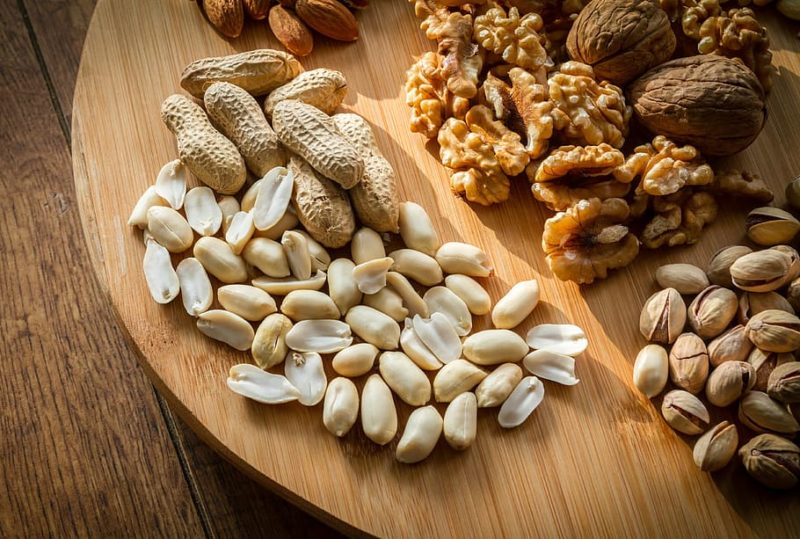
- Wholegrains (Barley, Buckwheat, Brown Rice, Pasta)
- Fruits
- Vegetables
- Legumes
- Nuts, Seeds, Beans
- Dairy Products
Food that is processed but rich in grains, such as brown pasta and rice is considered healthy and nutritious. Carbs from white bread and pasta should be avoided. They contain trans fat, which increases bad cholesterol and reduces good cholesterol.
Simple Carbs
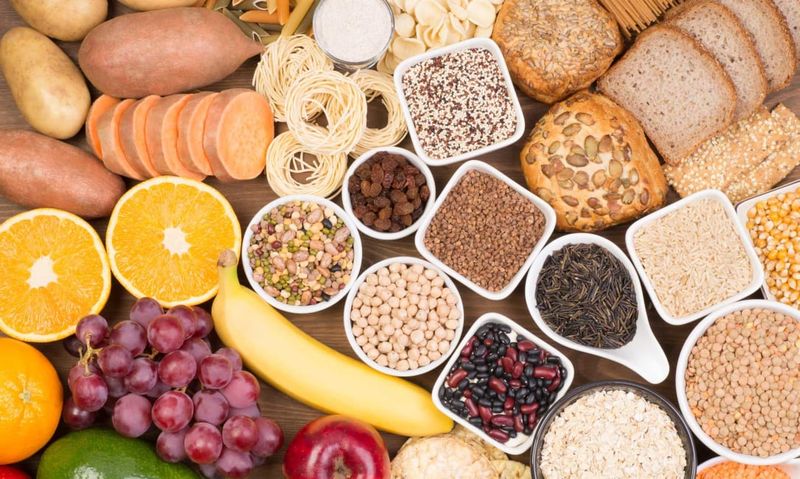
We need to be careful when consuming simple carbs. These carbohydrates break down the easiest to form energy. However, they can fluctuate glucose levels high and low very quickly. This means we need to limit the number of calories we intake from simple carbohydrates.
If we are less active during the day and consume a lot of simple sugars, we can put on weight very quickly. Simple carbs should be carefully monitored. The best time to eat these carbs is before exercise and not late in the evening. Examples of simple carbs include:
- White and Brown Sugar
- High Fructose Products (Candy)
- Concentrated Fruit Juice
- Syrups (Used as Condiments)
Complex Carbs
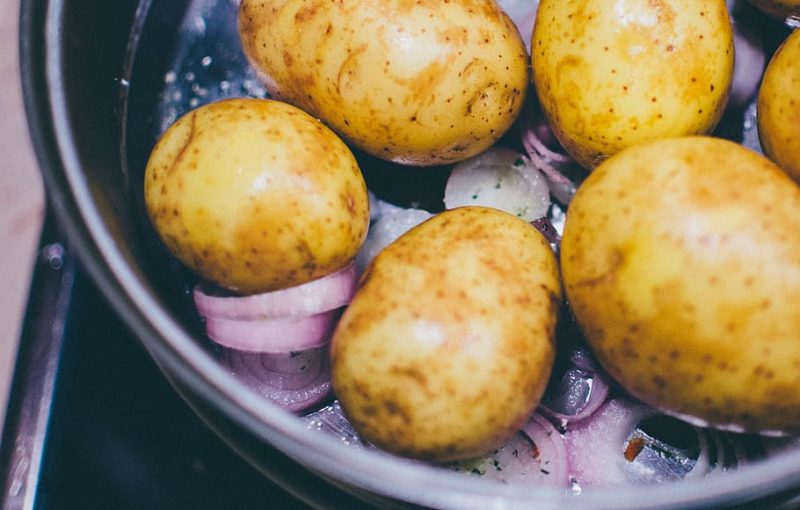
It is better to eat “complex carbs” rather than “simple carbs”.
Complex carbs take longer for the body to break down and supply our body with steady releasing and long-lasting energy. This is better for weight control as we produce a lot of energy from consuming fewer calories. Also, these calories contain more nutrients for more functions in the body. This means it stabilizes our appetite and doesn’t make us feel hungry for longer spells of the day.
Complex carbohydrates help our glucose levels to fluctuate in a more healthy and optimal range. Examples include:
- Bran Cereal
- Potatoes
- Wholegrain Bread and Oats (High in Fibre)
- Sweet Potatoes
- Quinoa
A lot of complex carbohydrates tend to be high in fiber.
Fiber is essential for maintaining a healthy digestive system and reducing bad cholesterol in the bloodstream.
2. Protein

The main function of proteins is cellular growth and maintenance, boosting immunity, and creating hormones and enzymes to regulate metabolism.
According to Men’s Health, we should be consuming roughly 30% of our daily calories from proteins. Proteins are broken down to make amino acids. These chemicals form the building blocks of all proteins. These substances produce codes to stimulate all reactions needed by our body.
What Protein Foods Should We Eat?

The best protein foods to eat are those that are lean and natural. These protein foods are low in calories and have less LDL cholesterol.
Animal proteins provide all the amino acids needed to produce all chemicals needed by our body. The best protein foods to eat are:
- Fish
- Beef
- Eggs
- Chicken
- Dairy Products
Considering all these great proteins foods, you still might want to look into supplementary solutions for an extra protein source, Syntha 6 protein powder will do the trick. Extra protein is a good idea for people with a super active lifestyle such as going to the gym on regular basis. If you are vegetarian or vegan, you can get all the essential amino acids from plant-based foods. It’s more challenging and requires more planning in your diet. You can visit Medmunch for a sample vegetarian diet plan!
Can We Eat Too Much Protein?
Protein can help to lose weight, but if we consume too much it will do exactly the opposite.
It’s a macronutrient that can help suppress appetite despite being low in calories. Protein produces enzymes that speed up our metabolic rate and effectively burn calories.
Active muscle tissue also needs protein for performance and recovery. This means that when we eat protein, our muscles will consume most of this energy before being stored in our bodies. This also helps promote weight loss.
However, excess amounts that our body doesn’t need will be stored as fat. Too much protein can cause intestinal discomfort and interfere with our digestive system. As a result, a change in hormonal production can also increase weight gain. It is very important to stay within the daily guidelines for eating protein.
3. Fats
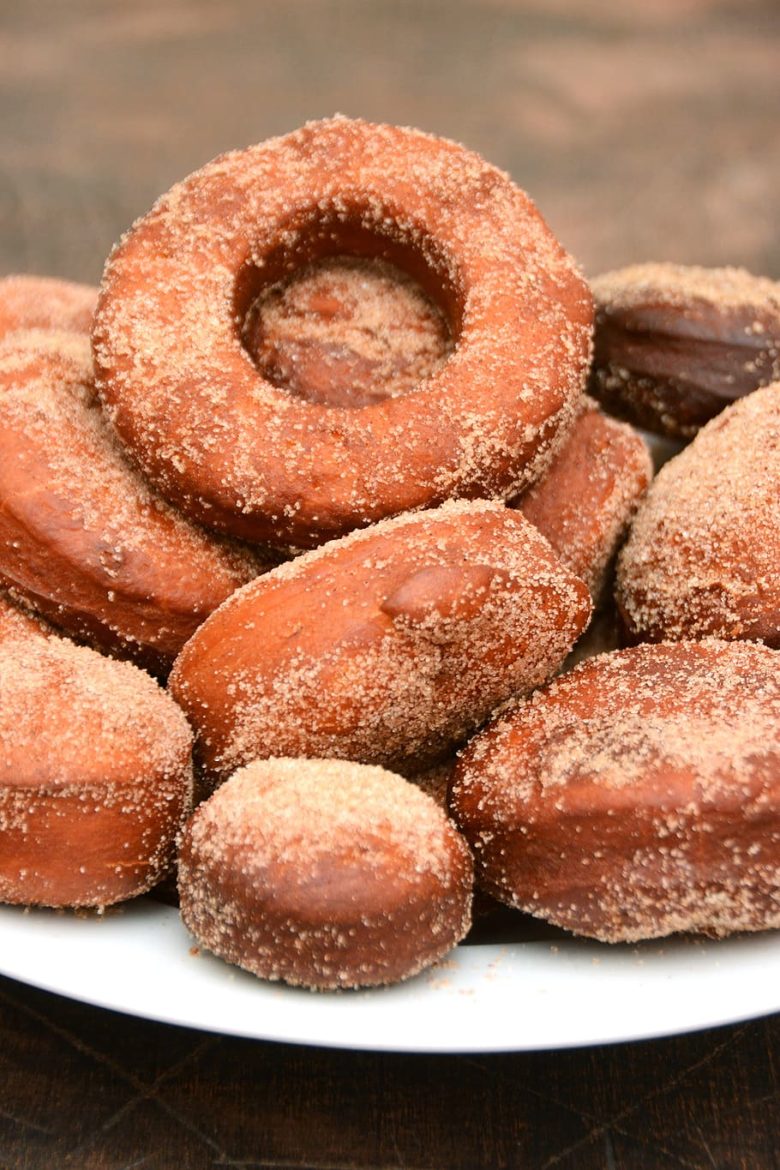
The main functions of fats are insulating our body, regulating temperate, and providing us with energy. Fats also assist amino acids for the production of some hormones and enzymes. The chemicals for building these protein blocks are found less in common protein foods.
Also according to Men’s Health, we should be consuming 20% of our daily calories from fats. Fats are also important for helping you absorb vitamins A, D, E, and K in your cells and tissues. These vitamins are called fat-soluble vitamins.
What fats are considered good and bad?
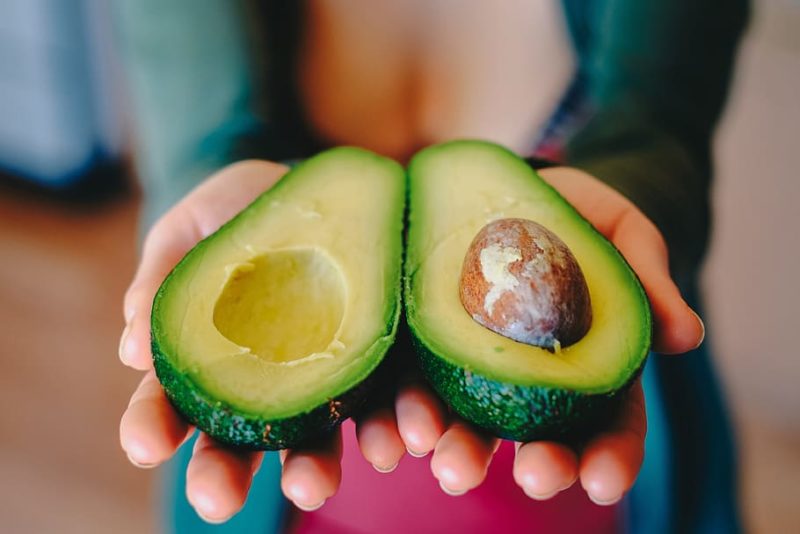
Polyunsaturated fats and Monounsaturated fats are referred to as “good fats” because they are low in bad cholesterol, promote good cholesterol, and rich in nutrients. Foods that contain good fat also tend to have a good source of protein. These fats can actually reduce the symptoms of heart disease and improve blood circulation.
Examples of “good fat” foods include:
- Avocados
- Eggs
- Fatty Fish (Salmon, Mackerel, Tuna)
- Yogurt
- Nuts
- Seeds
There are two types of bad fats – saturated and trans fat.
Trans Fat

Foods that contain trans fat are notoriously unhealthy. They are by far the worst of the two bad fats and should really be avoided. Trans fat increases bad cholesterol and damages good cholesterol simultaneously. This is why this type of fat is the worst for risking heart disease. Good cholesterol is increased primarily from exercise. Too much trans fat can undo all that hard work altogether.
Foods that have a high content of trans fat:
- Cookies
- Biscuits
- Doughnuts
- Chips
- Pastries
- Pizza
- French Fries
- Fried Foods – Hydrogenated Oil
Helpful tip:
When in a supermarket, you will see that many of these products claim to have “no trans fat” on their labels. This statement is not true.
Saturated Fat
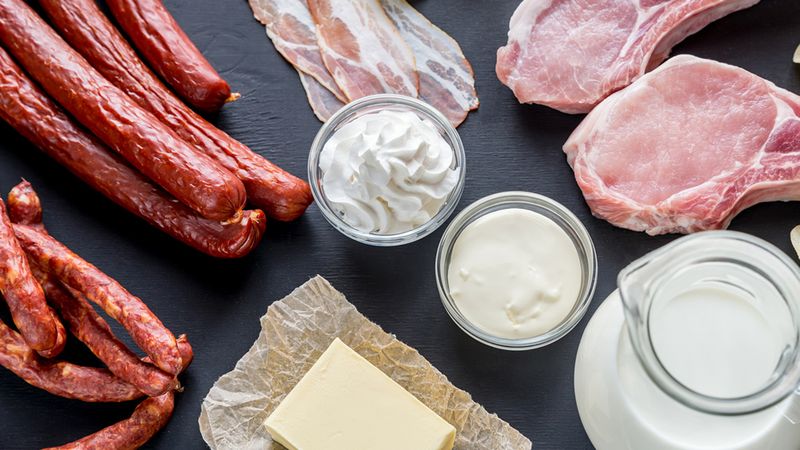
Saturated fat is generally formed when we fry food. Even healthy food such as Olive Oil changes its chemical texture when fried. It goes from having a high content of good cholesterol to bad cholesterol in a matter of moments. A lot of saturated fats contain nutrients that we need in our diet. These foods are rich in minerals and vitamins (especially energy vitamins).
Examples include:
- Red Meat (Beef, Lamb, Pork)
- Dark Chicken
- Cheese
- Milk
If including saturated fat into your meals, try to keep it limited and include natural foods that provide beneficial nutrients to a balanced diet. Avoid eating excessive amounts of junk food that contain saturated fat, such as chips and ice cream. These products provide no nutrition whatsoever.
What to Consider When Balancing Your Diet?

There are 7 essential elements to include when balancing your diet:
- Carbohydrates
- Proteins
- Fats
- Fiber
- Vitamins
- Minerals
- Water
Here are some helpful tips to takeaway:
- Eat about 4/5 portions of fruit and vegetables per day
- Base your meals around carbs that contain a lot of fiber
- Don’t fry all your meals
- Eat lean sources of protein from animals
- Drink plenty of water throughout the day


